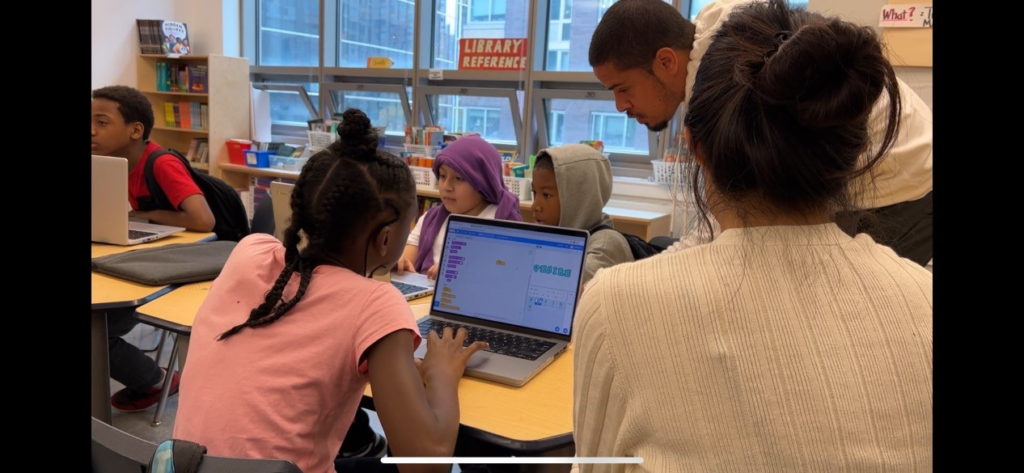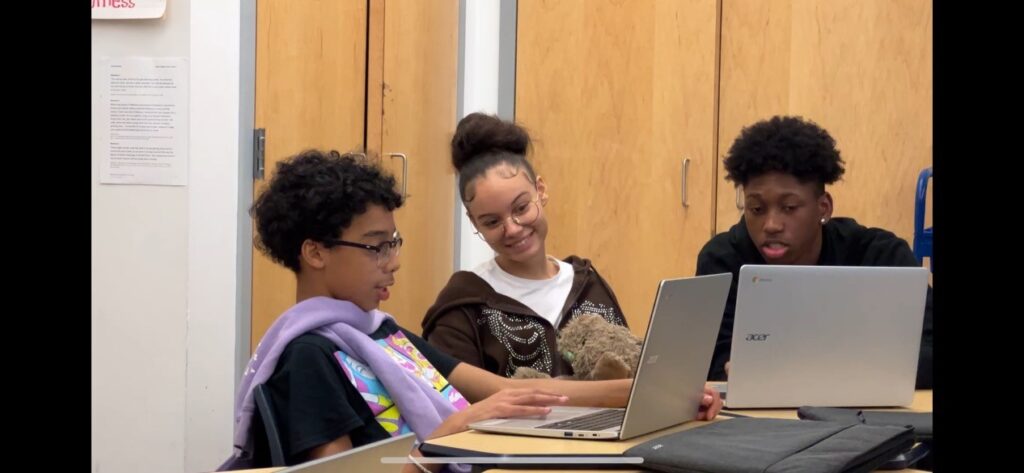Founder of Coding Program for Young NYCHA Residents Intends to Expand Program to all Developments
A former resident of Queensbridge Houses, Jason Gibson, who recently received the prestigious 2022 David Prize for creating and helming Hood Code, a free after-school coding program in NYCHA developments, said that he will use most of his $200,000 prize money to expand this program to additional NYCHA developments.
The David Prize organization had selected Mr. Gibson as one of five individuals whose “grit and vision” is transforming New York City. His non-profit aims to help children in poverty learn the high-paying, in-demand job skill of computer coding.
In only three and a half years, Hood Code has grown from offering classes and a full-day summer camp at a single NYCHA development – Washington Houses – to 10 across the city. Mr. Gibson plans on using the prize money to expand even further by purchasing more laptops and hiring a program manager to fulfill his “grand vision” of Hood Code being offered to all NYCHA developments by 2030. Of the thousands of youth who live at NYCHA, “we want to have the bulk of those kids be introduced to coding.”
Driving Mr. Gibson forward is his conviction that had he been offered the opportunity to learn more marketable skills as a youth, he wouldn’t have trafficked in drugs, for which he served a prison sentence of almost four years. Since then, Mr. Gibson has been making his living at a law firm as a reentry consultant for those just released from prison.
After reading dozens of books and articles on technology, Mr. Gibson settled on the tech industry as a lawful and lucrative alternative to drug-dealing. He noticed that, “for those who are successful in technology, the common thread was their exposure to technology at a young age.” The idea for Hood Code was born.
Mr. Gibson taught himself how to start and manage a nonprofit organization by reading recommended books, emulating other nonprofit leaders, and watching YouTube videos. In addition, he used the attributes he “developed in the street as far as relationships and community development are concerned, as well as the leadership skills I learned in my upbringing.” He also benefited from the mentorship of other non-profit career professionals. With 13 laptops and seed money from family, friends, and colleagues, he opened Hood Code in the summer of 2019. Within a month he had 20 students.
“Seeing what value, opportunity, and resources we could tap into and bring into the neighborhood to give talented people the opportunity to thrive,” Mr. Gibson said, was “the vision” that helped Hood Code win the David Prize. “The grit was what it took to execute on that vision and make that a reality for the young people.”
One of his backers has been venture capitalist Joanne Wilson, who sits on the board of NYCHA’s Fund for Public Housing. Both Ms. Wilson, who heads an angel investment firm, and NYCHA have been “very generous” to Hood Code, Mr. Gibson said.
Presently, Hood Code offers two-hour in-person and three-hour virtual sessions after school. The program has galvanized the aspirations of some students. One parent said that after having taken one of the 13-week Hood Code sessions, her son talks constantly about eventually working as a coder for Sony. Mr. Gibson said he hopes to help his students learn more sophisticated programs so that they ultimately can get internships with leading tech companies.
“Coming home from prison as a 34-year-old after serving a 45-month sentence, I had to learn a whole new skillset,” Mr. Gibson said. “That’s especially hard in an impoverished neighborhood; I know how difficult the professional transition was for me. I don’t want more generations of young people to be in that kind of dilemma.”






Older Hood Code students help younger students and on occasion, go on to become paid staff.

